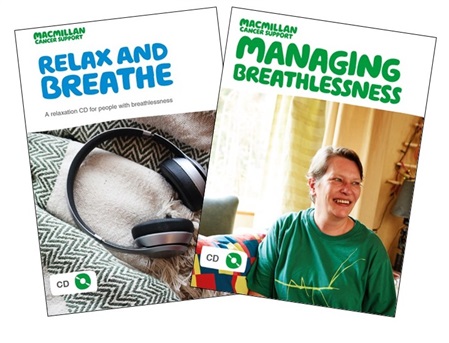This week is Breathe Easy week, an awareness event that focuses on lung health. In this blog, Cancer Information Nurse Teri looks at how to keep your lungs as healthy as possible. She discusses the symptoms of lung cancer and when to get them checked by your doctor.
Our lungs are constantly working. And as they work automatically, it is easy to take them for granted and not really think about them much. As a result, we may neglect to look after our lungs. And we may forget that there are things we can do to help prevent various lung conditions, including cancer.
Keeping your lungs healthy
1. Prevent infection
Chest infections can sometimes become serious. Symptoms can include a persistent cough, breathlessness, the production of sputum or phlegm, or a fever.
Ways to avoid infection:
2. Breathe deeply
Shallow breaths come from the chest, and deeper breaths come from the tummy, where your diaphragm sits. Your diaphragm is an important muscle, that helps you breathe. There are different breathing techniques that can help strengthen your diaphragm and help you breathe more easily. A technique called controlled breathing, uses your diaphragm and lower chest muscles. This can help you breathe more effectively.
3. Exercise regularly
Physical activity can improve your breathing by helping you to be as fit as possible. Exercise can strengthen your breathing muscles. Even people with more severe breathing problems can benefit from a small amount of physical activity. However, if you’re not used to exercising, it’s important to start slowly and increase the amount you do gradually over time. Avoid exercising near heavy traffic, so you don’t inhale the exhaust fumes.
4. Don’t smoke
Cigarette smoking is the major cause of lung cancer and other lung diseases. If you smoke, it's never too late to benefit from giving up smoking. It can be a difficult habit to break, but there is support available. You may find our booklet Giving up smoking helpful.
When should you see your doctor?
You can ask your GP if you can have a routine lung check at your surgery, even if you don’t have symptoms. However, it’s important to always get the following symptoms checked by your GP. It’s possible these symptoms may be a sign of lung cancer. However, they can also be caused by other lung conditions or by smoking.
The symptoms of lung cancer may include:
Other possible symptoms are:
For more information about lung cancer, you can order our free booklet, Understanding lung cancer.
During cancer treatment
If you do have cancer, breathlessness can happen as a result of the cancer itself or the treatment. In this situation, there are different causes of breathlessness. Your doctor will be able to tell you the cause of your breathlessness so that you can get the most helpful treatment.
Our booklet Managing breathlessness offers advice about coping with breathlessness. You can order it for free here or order the audiobook version here. You may also find our audiobook Relax and breathe helpful. It offers practical suggestions and techniques to help you cope better with your breathlessness. You can order the CD or listen online for free.
 ______________________________________________________________________________________________________
______________________________________________________________________________________________________
To see what else Macmillan's cancer information team has been blogging about, please visit our blog home page! You can subscribe to receive our blogs by email or RSS too.
We're with you every step of the way
The Macmillan team is here to help. Our cancer support specialists can answer your questions, offer support, or simply listen if you need a chat. Call us free on 0808 808 00 00.
Comments? Feel free to add them below (you need to be logged in).
Keep in touch Follow Macmillan’s cancer information team on Twitter @mac_cancerinfo
Whatever cancer throws your way, we’re right there with you.
We’re here to provide physical, financial and emotional support.
© Macmillan Cancer Support 2026 © Macmillan Cancer Support, registered charity in England and Wales (261017), Scotland (SC039907) and the Isle of Man (604). Also operating in Northern Ireland. A company limited by guarantee, registered in England and Wales company number 2400969. Isle of Man company number 4694F. Registered office: 3rd Floor, Bronze Building, The Forge, 105 Sumner Street, London, SE1 9HZ. VAT no: 668265007